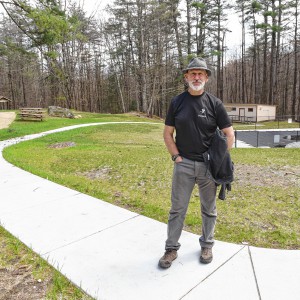With new session underway, local health officials outline legislative priorities
| Published: 03-23-2023 1:03 PM |
Local public health officials are asking for the community’s help in garnering support for its list of priorities this legislative session.
“We have an extremely narrow group [of legislative bills] that we’ve identified, and we’re hoping to track the heck out of them,” said Phoebe Walker, director of community services with the Franklin Regional Council of Governments (FRCOG). “We hope to be part of the reason why they succeed, or don’t, but hopefully why they succeed.”
These priorities, which address issues around housing, education, home health care and transportation, were recently finalized by the Steering Committee for the Community Health Improvement Plan (CHIP) Network and presented to a wider community of public health officials on Wednesday.
CHIP, which is now in its third year of a three-year cycle, aims to identify priority health needs, disparities and the factors that contribute to them; identify current and required resources to address these needs; reduce gaps in services; and overall, improve the health in the region.
For the 193rd session of the Legislature, which runs from January 2023 to December 2024, six bills in particular were highlighted on Wednesday. Those bills include:
■H.3272/S.2277: An act to increase regional transit accessibility in the state.
■H.2204/S.1344: An act relative to accelerating improvements to the local and regional public health system to address disparities in the delivery of public health services.
■H.216/S.67: An act allowing spouses to serve as caregivers.
Article continues after...
Yesterday's Most Read Articles
■H.489/S.301: An act providing affordable and accessible high-quality early education and care to promote child development and well-being and support the economy in the state.
■H.2747/S.1771: An act granting a local option for a real estate transfer fee to fund affordable housing.
■S.1307: An act relative to regional municipal affordable housing trusts.
Additionally, public health officials are calling for changes to program administration and state grants, with the goal of making bills “more rural friendly.” And finally, Walker said Gov. Maura Healey is expected to file a bond bill related to housing that would recapitalize programs that serve diverse populations, including working families, the elderly, people with disabilities and the homeless.
“We think each of these priorities would make a difference,” Walker said.
She spoke in particular about the need for a more centralized and better-funded public health system, which would be accomplished through H.2204/S.1344.
“During COVID, we saw what happens when you don’t have public health nurses, or a contact tracing system,” Walker said. “We’ve been working for so many years to change that system. We came so close in the last session.”
Walker said this bill is returning after passing unanimously in both the House of Representatives and the Senate before getting “hung up in political negotiations” under the past administration.
H.216/S.67, the bill pertaining to compensation for caregivers, would help to address the “urgent home health care crisis,” she said.
Becky Hamlin of Community Action Pioneer Valley said with respect to H.489/S.301, the bill pertaining to education, child care and early education, these services are “in a crisis situation.”
“Providers are struggling just to find enough staff to run their programs and keep their classrooms open,” she said. “A lot of classrooms are closed because of the staffing crisis. This bill … is providing a framework that prioritizes subsidies for lower-income families; it provides more reimbursement for providers of subsidized care.”
Walker said with the influx of bills getting filed this past month, it’s important now for residents to reach out to the relevant committees and lawmakers and ask them to support a particular bill.
“Our hope from this giant sea of bills … is to get them to actually have hearings in the committees,” Walker said. “That’s why the very first thing … you can do is write to the [respective] committee.”
A list of resources, including who to contact for particular bills, can be found on FRCOG’s website at bit.ly/3TFmB5B.
Reporter Mary Byrne can be reached at mbyrne@recorder.com or 413-930-4429. Twitter: @MaryEByrne.

 $427K to expand Camp Apex capacity in Shelburne
$427K to expand Camp Apex capacity in Shelburne With eye toward teaching firearm safety, Mahar’s Junior ROTC adding air rifles
With eye toward teaching firearm safety, Mahar’s Junior ROTC adding air rifles Franklin County Fairgrounds hosting regional dog agility competition
Franklin County Fairgrounds hosting regional dog agility competition Franklin County Technical School Honor Roll, Semester 1
Franklin County Technical School Honor Roll, Semester 1
